Don't miss our holiday offer - up to 50% OFF!
Peminib 13.5 mg (Pemigatinib)
Peminib 13.5 mg is an oral, potent medicine that has primarily been employed to treat cholangiocarcinoma( CCA). A largely aggressive and extremely rare cancer of corrosiveness conduit origin. It’s an unrecoverable, picky asset of fibroblast growth factor receptor( FGFR) 1, 2, and 3, which play a pivotal part in colorful tumorigenesis processes. Pemigatinib has been particularly observed to be extremely effective in the treatment of advanced cholangiocarcinoma with FGFR2 mixtures or rearrangements and has been a remedial option in a complaint where veritably many can be treated.
Mechanism of Action
Peminib 13.5 mg blocks fibroblast growth factor receptor( FGFR) pathways, which are constantly abnormally actuated in cancer. FGFR is involved in significant cell processes similar as cell proliferation, survival, migration, and angiogenesis( new blood vessel conformation). FGFR2 and other FGFR mutations drive excrescence growth in some cancers. Through specific binding to and leaguer of the exertion of FGFR1, FGFR2, and FGFR3, pemigatinib effectively inhibits the signaling pathway that’s causative of excrescence cell growth and survival.
The medication stops FGFR transmission from causing upstream falls that result in unchecked cell proliferation by attaching itself to the receptor’s ATP-binding site. Peminib thus causes excrescence retrogression and complete absolution in some cases. The picky leaguer makes pemigatinib largely precious in cancers with FGFR differences because it’s a targeted type of treatment with smaller adverse effects compared to traditional chemotherapies.
Indications and Usage
Peminib 13.5 mg is particularly authorized for adults with FGFR2 translocation or inversion cholangiocarcinomas that are distant or incurable. Cholangiocarcinoma, although fairly rare, is a fatal complaint with poor prognostic. The inviting maturity of cases are seen at late stage when surgical resection isn’t possible. Targetability by pemigatinib of the natural inheritable abnormalities of this cancer has revolutionized its treatment, with pledge for cases with else limited options.
Dosage and Administration
The usual dose for pemigatinib tablets is 13.5 mg given orally once weekly. To ensure optimal intake, the pill must be taken empty-handed, at least twenty minutes before or two hours after eating. It is recommended that pemigatinib pills be inhaled whole rather than broken up or chewed.
In some cases, case adaptation will be necessary because of adverse responses or a change in the case’s clinical condition. Monitoring on an ongoing base, including liver function tests, might be necessary for safe administration, since Peminib has an effect on liver enzymes along with other body systems. Cure reduction or hold may be necessary if intolerable side effects do in a case.
Side Effects
As a congruity with utmost medicines, Peminib has side effects, of which some are serious. Some of these side effects include hyperphosphatemia( elevated blood phosphates), diarrhea, fatigue, nausea, and alopecia( hair loss). It’s pivotal to observe cases nearly for signs of side effects, particularly when first starting treatment.
In addition, pemigatinib significantly affects liver and order function, and regular testing is necessary. Optical toxin, for case, similar as blurred vision and dry eyes, has also been observed. Cure adaptation or short- term pullout from treatment may be needed to guide cases on how to deal with similar goods.
Precautions and Warnings
Peminib isn’t specified in cases with serious liver dysfunction, and care must be exercised in cases with moderate liver dysfunction. Caution should also be exercised in treating cases with current eye complaint as the medicine may aggravate the complaint. Gestation and lactating maters should be avoided taking pemigatinib as its part on fetal growth and lactating babies is unknown.
The medicine also interacts with other medicines, and hence health interpreters must review a case’s drug history before starting Peminib to help implicit medicine- medicine relations that could reduce its effectiveness or beget fresh side effects.
Conclusion
Pemigatinib 13.5 mg (Peminib) represents a significant step in the treatment of cholangiocarcinoma with FGFR2 gene rearrangements or mixtures. Aiming at the molecular medium leading to cancer, Peminib offers a more targeted, more effective, and lower poisonous approach compared to standard curatives. Its appearance on the oncology request is a pivotal step toward acclimatized cancer treatment. Bringing expedients for cases with extremely limited other options. Near observation, still, is demanded in order to offer safety and maximize treatment effectiveness.

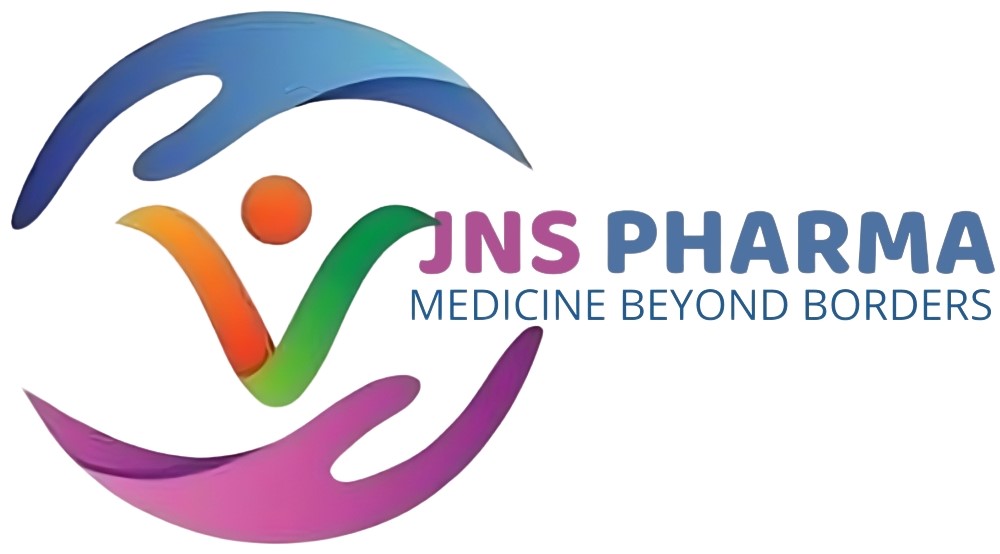
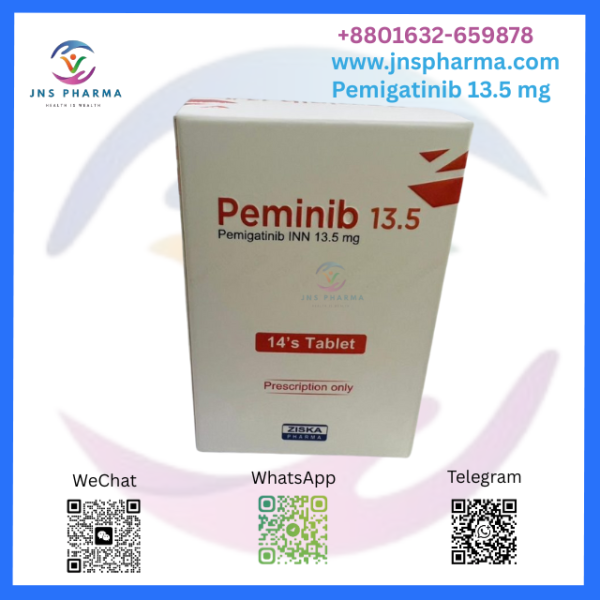
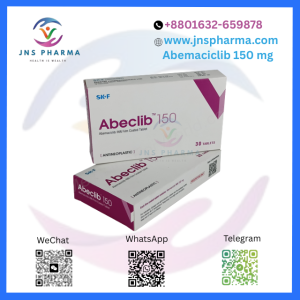
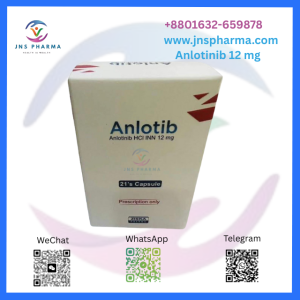
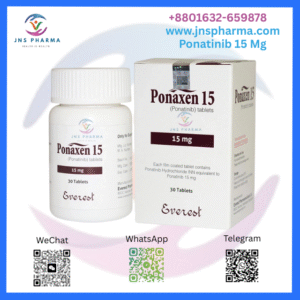
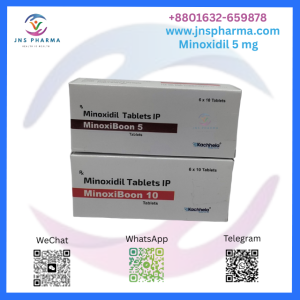
Reviews
There are no reviews yet.